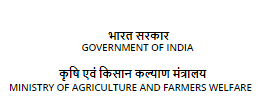SAGARIKA for salt/sodicity tolerant mango rootstock
Background
Rootstock is an integral component of an orchard enterprise and decides its success. Properly selected rootstocks have the potential to increase productivity by providing good architecture, ameliorating the soil, enhancing nutrient availability, and water use efficiency, and imparting resistance/tolerance to various biotic and abiotic stresses. The global salt-affected area is projected to increase substantially in the foreseeable future due to freshwater scarcity, poor irrigation management, rampant use of poor-quality waters in irrigation, and the impact of climate change. Ironically, soil reclamation through conventional means is increasingly becoming difficult. In the face of rising amendment costs and rapidly depleting fresh water, there is a tangible shift from mitigation to adaptation measures for salinity management. The use of salt-tolerant plants is suggested as an affordable and efficient approach to obtaining stable harvests under saline conditions, with reduced or no use of fresh water and amendments. In fruit crops, the development of salt-tolerant scion cultivars is cumbersome and cost-prohibitive shifting the emphasis on developing salt excluder rootstocks. Reduced uptake of salts by the roots can considerably lessen injurious effects on the fruit-bearing shoot system. Rootstocks capable of either fully or partially excluding Na? and Cl? ions and exerting other beneficial effects on the shoot system have been identified in many fruit crops.:
Technology Details:
Salt toxicity is a major productivity constraint that limits the cultivation of several fruit crops including mango. Mango is one of the important fruit crops of the Indo-Gangetic plains and is more sensitive to salinity. Development of rootstock tolerant to salinity and sodicity is the only alternative approach to establishing the crop in salt-affected soils. An intensive survey in the Andaman and Nicobar Islands after the post-tsunami sea water inundations resulted in the collection of 33 accessions among which 15 were polyembryonic. Screening the polyembryonic accessions in pots revealed six accessions possessing moderate to high tolerance to salinity. Further screening of six accessions in sodic soils under field conditions for five years resulted in the identification of the ‘Sagarika’ for its salt-tolerant trait. ‘Sagarika’ is a regular bearer, polyembryony, and salt/sodicity tolerant mango rootstock. It takes 2-3 years to get into the bearing stage. Under sodic soils, it takes 110-120 days from flowering to fruit maturity in sub-tropical conditions. Under the tropical conditions of Andaman, it takes 90-100 days from flowering to fruit maturity. It bears 150-250 fruits/plant which yields about 10-20 kg at soil pH 9.0–9.39 after 8 years of planting under the salt-stressed condition with calcareous soil. The fruits are small in size, attractive yellow color, firm, fibrous, and dark yellow pulp, and with polyembryonic seed.


